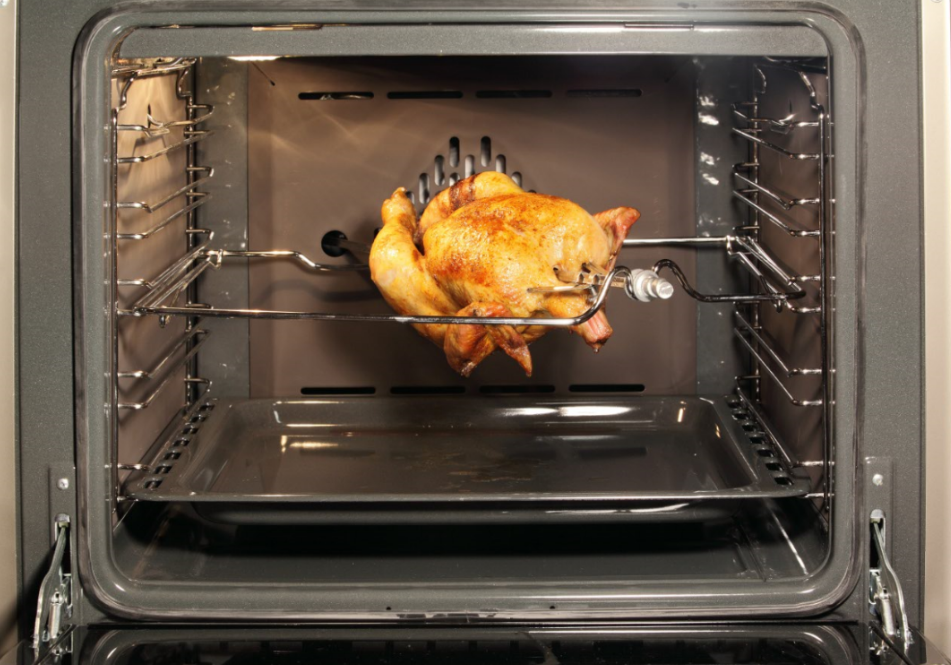It is always important to eat foods that are handled and prepared safely. However, during cancer treatment, it is even more crucial. A common side effect of chemotherapy, radiation therapy, and certain medications is a weakened immune system. When your immune system is compromised, you are more susceptible to foodborne illness. For this reason, it is important to follow food safety guidelines to ensure that the foods you eat do not make you sick and compromise your health to a greater extent.

Avoid these high-risk foods during treatment:
- Undercooked meat and poultry
- Processed meats (hot dogs, deli meats, and luncheon meats)
- Raw or undercooked seafood, including sushi and sashimi
- Raw or unpasteurized milk
- Soft cheeses made from raw or unpasteurized milk, such as feta, brie, Camembert, blue, or queso fresco
- Foods that contain raw eggs (homemade Caesar salad dressings, raw cookie dough, eggnog, etc.)
- Fresh sprouts (raw alfalfa, bean, or other sprouts)
At the grocery store:
- Check all sell-by dates, and do not buy foods that are past this date.
- Do not buy damaged food items.
- Purchase only pasteurized products (milk and other dairy, eggs, juice).
- Ensure that refrigerated foods are cold and frozen foods are frozen.
- Place meat, poultry, and fish in plastic bags so they do not drip and contaminate other food items.
- Do not buy cracked or damaged eggs.
- Do not buy bulk food items from self-serving containers.
At home:
- Thoroughly wash hands and all surfaces with soap and warm water before preparing foods.
- Do not cross contaminate food. Keep at least two cutting boards – one designated for raw foods (to be cooked) and the other for ready-to-eat foods.
- Always clean raw vegetables and lettuce before eating.
- Refrigerate foods promptly after cooking (within 2 hours).
- Thaw foods in the refrigerator, not on the counter.
Safe internal cooking temperatures:
| Category | Food | Temperature (degrees F) |
| Ground Meat and Meat Mixtures | Beef, pork, veal, lamb | 160 |
| Turkey & Chicken | 165 | |
| Fresh Beef, Veal, Lamb | Steaks, roasts, chops | 145 |
| Poultry | Chicken & Turkey, whole | 165 |
| Poultry breasts, roasts, thighs, legs, wings | 165 | |
| Duck & Goose | 165 | |
| Stuffing (cooked alone or in bird) | 165 | |
| Pork & Ham | Fresh pork | 145 |
| Fresh ham (raw) | 145 | |
| Precooked ham (to reheat) | 165 | |
| Eggs and Egg Dishes | Eggs | Cook until yolk and white are firm |
| Egg dishes | 160 | |
| Leftovers & Casseroles | Leftovers | 165 |
| Casseroles | 165 | |
| Seafood | Fin fish | 145 or cook until flesh is opaque and separates easily with a fork |
| Shrimp, lobster, crabs & scallops | Cook until flesh is pearly or white, and opaque | |
| Clams, oysters & mussels | Cook until shells open during cooking |
Source: http://www.foodsafety.gov/keep/charts/mintemp.html
For more information about eating healthy with cancer, check out Diet and Cancer Treatment: Tips for Healthy Eating: https://extension.colostate.edu/topic-areas/nutrition-food-safety-health/diet-and-cancer-treatment-tips-for-healthy-eating-9-332/.
Did You Know?
To avoid foodborne illness and additional health complications, it is especially important for individuals undergoing treatment for cancer to consume foods that are stored, prepared and served at safe temperatures.


